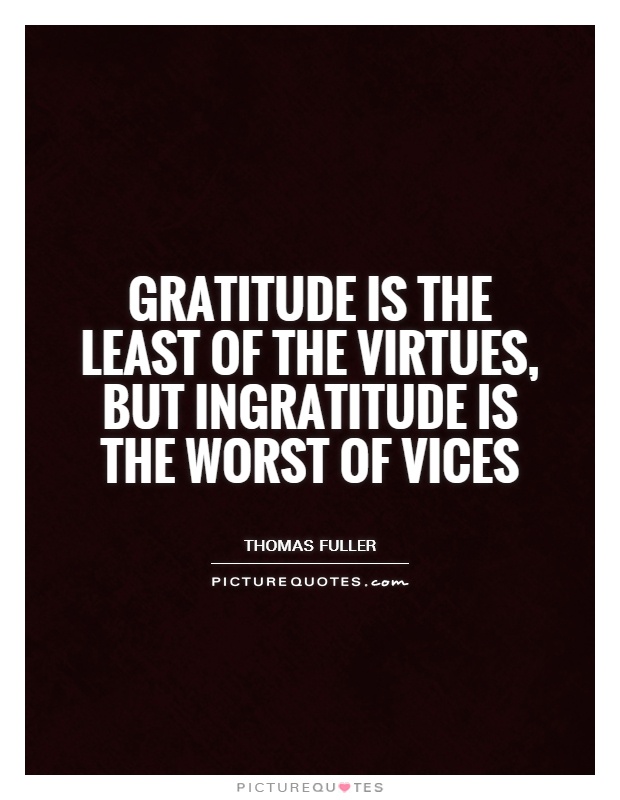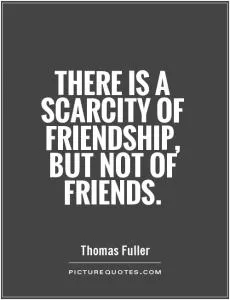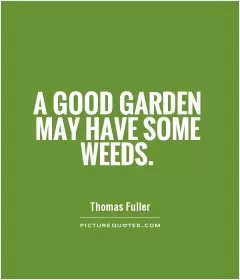Gratitude is the least of the virtues, but ingratitude is the worst of vices

Gratitude is the least of the virtues, but ingratitude is the worst of vices
Thomas Fuller, a 17th-century English churchman and historian, once said, "Gratitude is the least of the virtues, but ingratitude is the worst of vices." This statement holds a profound truth that is still relevant today. In a world where people are often focused on their own needs and desires, it is easy to overlook the importance of gratitude. However, failing to express gratitude can have serious consequences, not only for the individual but also for society as a whole.Gratitude is often seen as a simple and basic virtue, one that is easily overlooked in the hustle and bustle of everyday life. However, it is a powerful force that can have a profound impact on our relationships, our mental health, and our overall well-being. When we express gratitude, we acknowledge the kindness and generosity of others, which can strengthen our connections with them and foster a sense of community and belonging. Gratitude can also help us to cultivate a positive mindset, leading to greater happiness and resilience in the face of challenges.
On the other hand, ingratitude is a destructive force that can erode relationships and undermine trust. When we fail to acknowledge the kindness of others or take their generosity for granted, we risk alienating them and damaging the bonds that hold us together. Ingratitude can also lead to feelings of entitlement and resentment, creating a toxic environment that is harmful to both individuals and society as a whole.












 Friendship Quotes
Friendship Quotes Love Quotes
Love Quotes Life Quotes
Life Quotes Funny Quotes
Funny Quotes Motivational Quotes
Motivational Quotes Inspirational Quotes
Inspirational Quotes